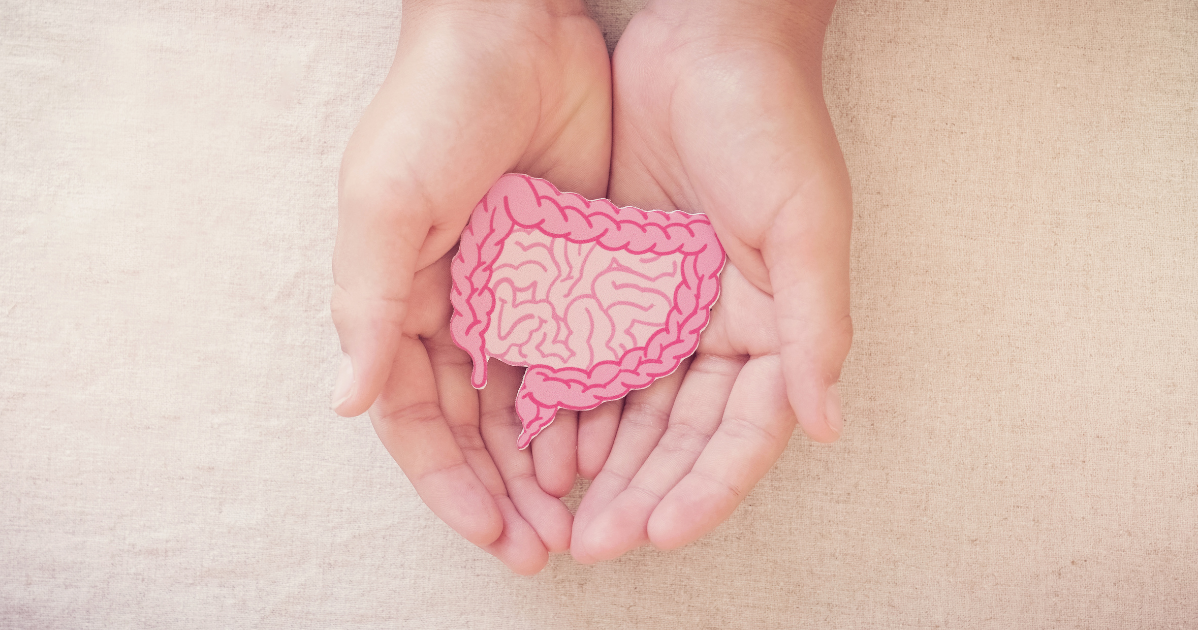Are you aware of the gut-fertility connection? Infertility is a very common issue that often requires a multifactorial approach to treatment.
Gut health is one component of infertility that often gets overlooked. But taking care of your gut puts your body in the best position to conceive and have a healthy pregnancy!
In today’s article, we will be diving into the gut-fertility connection and how improving your gut health can help with your fertility. Keep reading to learn our dietitian-approved tips to start supporting your gut today!
Make sure to check out our full blog post on client-centered care next!
Infertility Awareness
June is World Infertility Awareness Month, and we are here to highlight infertility issues faced by those around the world each year. Infertility is commonly thought only to affect a small portion of the population. This is a large misconception, however, as about 17% or 1 in 6 adults worldwide experience infertility.
So, know you are not alone in this fight! There are health professionals and researchers supporting you to help you find a way to conceive one day!
You are strong, and here at New York City Nutrition, we are here to give you all the information and assistance you need to guide you along this journey to take your fertility back.
Connection Between Gut Health and Infertility

So, you have heard about the importance of gut health, but how is this connected to your infertility issues? These two concepts are actually more closely related than you may think.
Gut health plays such a pivotal role in controlling so many aspects of your health including your immune and inflammatory response, as well as how you produce and secrete hormones.
Understanding this connection may be essential to uncovering the root cause of your infertility. Continue reading for the connection, symptoms, and tips for improving your gut health and infertility!
How Does Poor Gut Health Impact Infertility?
Research has shown that women with unexplained pregnancy loss show a high prevalence of undiagnosed gut disorders. More specifically, these women were found to have gut permeability, better known as leaky gut, where nutrients are unable to remain within the boundaries of the gut to get digested.
Instead, they leak through the gut and into other areas of the body, causing nutrient deficiencies, bloating, gas, and abdominal pain. This leads to an increased inflammatory response in your body which is thought to cause infertility issues.
The gut microbiome also has a direct correlation with immune function. Poor gut health leads to a poor immune response weakening how your body reacts to sickness. As a result, your inflammatory response increases as a protection mechanism.
As mentioned, chronic inflammation impacts recurrent pregnancy loss. It also decreases progesterone levels leading to implantation issues, the development of sperm antibodies, and the development of autoimmune disease, ultimately impacting fertility.
Aside from the impact of inflammation, the gut is also responsible for converting bound estrogen to active free estrogen. Without a healthy gut, estrogen metabolism becomes impaired, which can cause estrogen dominance through the build-up of unconverted estrogen.
This can lead to a number of hormonal imbalance issues like PCOS, endometriosis, and endometrial hyperplasia, all leading to infertility issues.
Symptoms of Poor Gut Health

Are you wondering if you have poor gut health? These common symptoms below may be signs that your gut needs some love and TLC!
Remember that recurrent gut issues are NOT normal. If you are running out of the office to the nearest bathroom frequently or avoiding dinners out with your friends because of bloating, you may want to take a deeper dive into your gut health.
Poor gut health signs and symptoms include:
- Feeling nausea in the morning
- Rosacea
- Psoriasis
- Bloating
- Upper abdomen: infection, gastroparesis, impaired stretching
- Middle abdomen: IBS, food intolerance
- Lower abdomen: pelvic floor dysfunction
- Constipation
- Trapped gas in the stomach
- Headaches
- Brain fog
- Chronic fatigue
- Frequent sickness
All of these symptoms impact your hormones and, thus, your fertility. If you have bad gut health and are constipated, you are unable to detox toxins and excess hormones, causing build-up in the body.
An imbalanced gut microbiome can lead to leaky gut, increased inflammation, immune system failure, and estrogen metabolism issues, all researched to be underlying causes of infertility. These symptoms may be different from person to person, and you may even experience more than one symptom.
Have you signed up for our FREE 6 Tips to Support Hormone Health freebie? If not, make sure to sign up at this link! It also includes 6 hormone-friendly meal ideas that you can try today.
How to Improve Gut Health
While the concept of gut microbiota may be complicated, improving your gut health does not have to be. Start with small changes in your diet and lifestyle, and over time, you will begin to see changes!
Your gut health was not ruined overnight, and similarly, it will not be repaired overnight. It is important to note that every gut microbiome is unique, and thus what one gut may be able to tolerate, another may not.
Tips to Improve Gut Health

Use these basic tips below as a starting point for how to improve your gut health. Remember that working with a qualified dietitian (like us here at NYCN) is the best way to make sure your nutrition and lifestyle plan will be effective for you. This supports your body to be able to conceive!
- Increase fiber intake. A diet high in fiber is associated with an increased variety of gut microbiota which is crucial for good gut health.
- Eat fermented/probiotic foods. Fermented foods contain probiotics that are beneficial for the good bacteria in the gut to feed off of. There are many fun recipes where you can make fermented vegetables at home. My favorites are fermented beets using water, salt, and coriander seed!
- Use a squatty potty for constipation. A squatty potty elevates your feet while you use the bathroom to align your colon to a more ideal position allowing you to go without straining.
- Increase diversity in your diet. By increasing the diversity of plant foods in your diet, you nourish different microbes diversifying your microbial community. A more diverse community creates a healthier, more resilient gut!
- Avoid processed sugars. Diets high in processed sugars cause increasing amounts of inflammation in the body and eliminate the beneficial bacteria in your gut.
- Exercise regularly. Regular physical activity modifies the gut microbiome by increasing the amount of beneficial bacteria present.
- Get adequate sleep. Sleep deprivation can alter the gut microbiome causing increased amounts of stress. Adequate sleep positively impacts the gut microbiome composition and diversity.
- Practice self-care and stress management. Increased amounts of stress lead to elevated cortisol levels and an inflammatory response in the body. As mentioned earlier, chronic inflammation causes gut irritation.
The Takeaway: Gut-Fertility Connection
While there is a lot to understand about the gut and fertility connection, the major takeaway is that there is a strong correlation between your gut health and your fertility outcomes.
If you are struggling with infertility and have yet to address your gut health, it may be time you take a serious look at your diet and lifestyle factors that could be contributing to your poor gut health.
The better gut health you have, the higher potential you have to conceive and also feel good in your body and digestion!
Need help fixing your gut health? Let our team of dietitians help rebalance your gut microbiome. At New York City Nutrition, we specialize in all things fertility and gut health.
Let this be the time you take control of your infertility by making the first step to working with one of our amazing team members! Schedule your FREE complimentary call at this link today.








